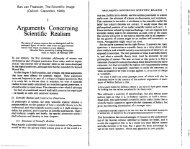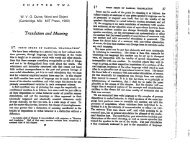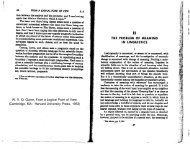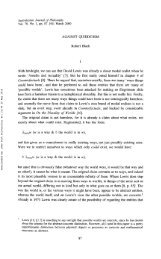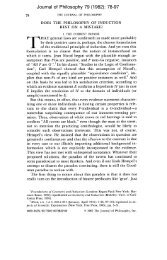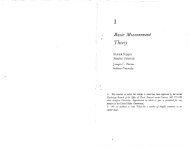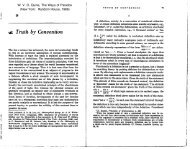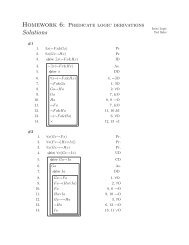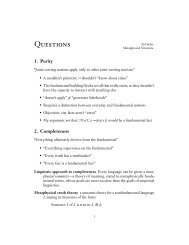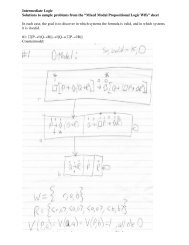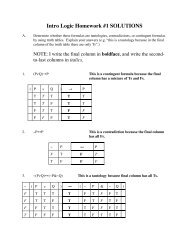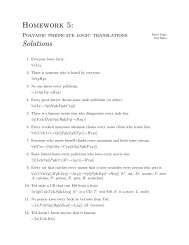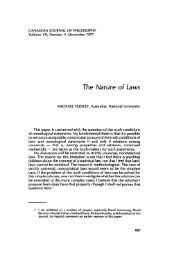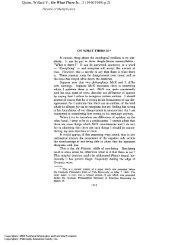Fine - guide to ground.pdf - Ted Sider
Fine - guide to ground.pdf - Ted Sider
Fine - guide to ground.pdf - Ted Sider
You also want an ePaper? Increase the reach of your titles
YUMPU automatically turns print PDFs into web optimized ePapers that Google loves.
53<br />
§11 Essence and Ground<br />
Given an object or some objects, we may say that it lies in the nature of those objects that<br />
such and such should hold – that it lies, in the nature of single<strong>to</strong>n Socrates, for example, that it should<br />
have Socrates as a member. But what then is the connection between statements of nature or essence<br />
and statements of <strong>ground</strong>? 22<br />
A natural view is this. Given that the fact F is <strong>ground</strong>ed in the facts G 1, G 2,<br />
…, then it lies in<br />
the nature of the fact F (or of the items that it involves) that it should be so <strong>ground</strong>ed given that the<br />
facts G 1, G 2,<br />
… do indeed obtain. So, for example, given that the fact that the ball is red and round is<br />
<strong>ground</strong>ed in the fact that it is red and the fact that it is round, it will lie in the nature of the fact that<br />
the ball is red and round that this fact will be <strong>ground</strong>ed in the fact that the ball is red and the fact that<br />
23<br />
the ball is round (given that the ball is in fact red and is in fact round).<br />
Unfortunately, this view will not quite do as it stands. The fact that someone is a philosopher,<br />
we may suppose, is <strong>ground</strong>ed in the fact that Socrates is a philosopher (and perhaps also that he<br />
exists and is a person). But it does not lie in the nature of the fact that someone is a philosopher that<br />
the fact is so <strong>ground</strong>ed given that Socrates is indeed a philosopher. The fact, so <strong>to</strong> speak, knows<br />
nothing of Socrates. Or again, the fact that the ball is colored is <strong>ground</strong>ed, we may suppose, in the<br />
fact that it is red. But it does not lie in the nature of the fact that the ball is colored that it is so<br />
<strong>ground</strong>ed given that the ball is indeed red. The fact and color, in particular, know nothing of the<br />
specific colors.<br />
22<br />
The concept of essence is further discussed in <strong>Fine</strong> [1994].<br />
23<br />
I say that it lies in the nature of the fact that the ball is red and round and thereby treat the fact as an object<br />
(perhaps identical <strong>to</strong> the proposition that the ball is red and round). But there is something <strong>to</strong> be said for allowing it<br />
<strong>to</strong> lie in the nature of what it is for the ball <strong>to</strong> be red and round, where this is represented by a sentential rather than<br />
by a nominal complement <strong>to</strong> the essentialist opera<strong>to</strong>r.



